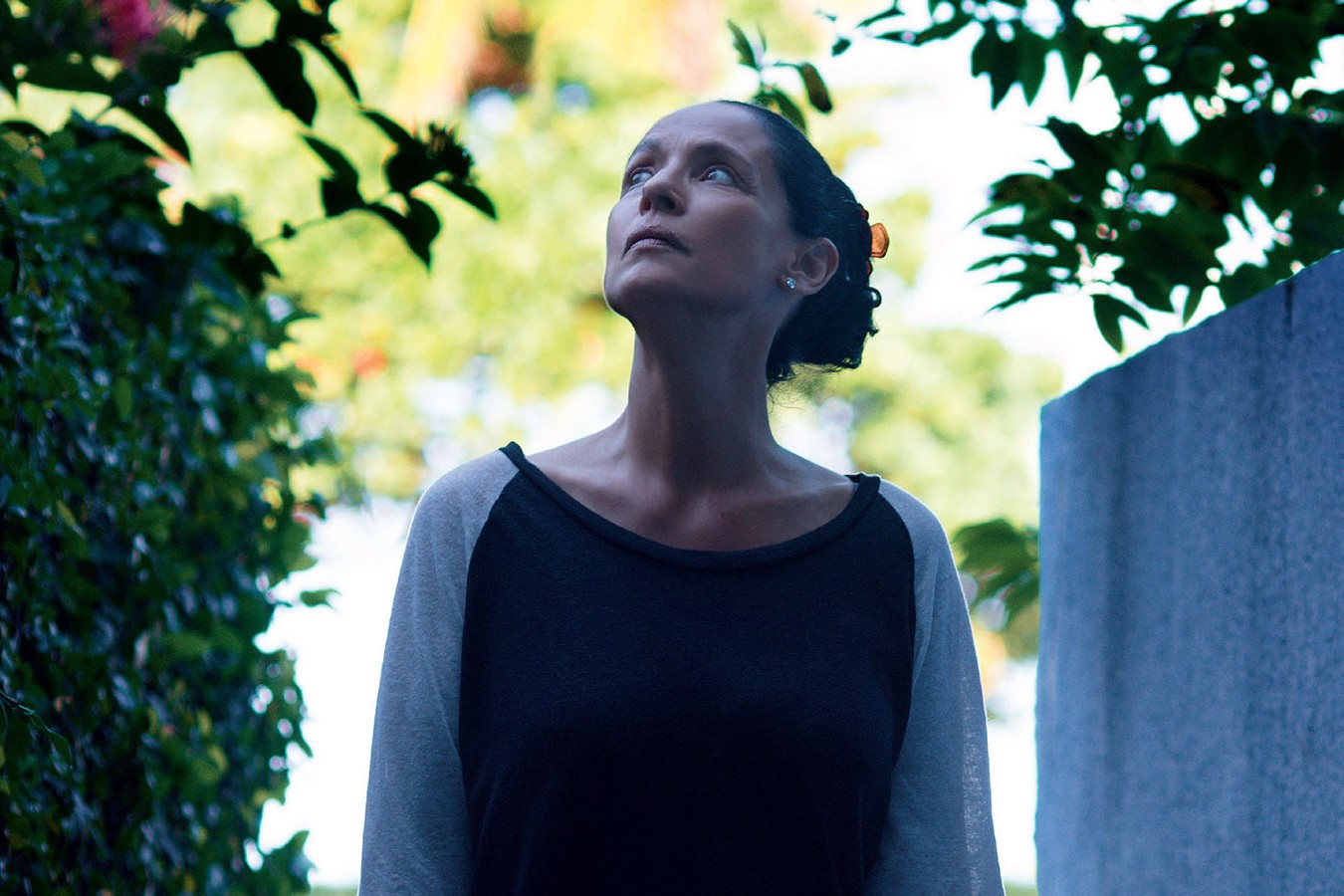Aquarius is large but intimate, political but personal; it’s frank in its ambition to explore The Way We Live Today, but also mysterious and elusive. I’ve seen few films this year more fascinating. The second feature by Brazilian writer/director Kleber Mendonça Filho (Neighborhood Sounds), this movie clocks in at a leisurely 142 minutes—some urgent, some curiously relaxed.
We are in Recife, a city of beaches and history. Living in view of the beach is Clara, a writer now in her mid-60s. She comes from a comfortable background and is a widowed cancer survivor, her three children all in adulthood. Clara owns a condo in a gorgeous Art Deco building—the status of which will provide the movie’s backbone.
Clara is played, radiantly, by Sonia Braga, and this is an important part of watching Aquarius. Braga is an icon (yes, that word is sometimes accurate) of Brazilian cinema, having come to stardom in the 1976 international hit Dona Flor and Her Two Husbands and the Oscar-winning Kiss of the Spider Woman. For all its ambitions, Aquarius is also unabashedly a showcase for Braga, and she delivers like prime-era Bette Davis. Clara lives alone, though daily attended by her longtime maid Ladjane (Zoraide Coleto). She enjoys her fiercely loved LPs and books (the movie actually stops for a five-minute disquisition on the importance of physical media), she swims in the Atlantic, she goes for drinks with female friends.
A few scenes take a quietly critical eye toward Clara’s privilege—this comes up in her edgy relationship with her daughter (Maeve Jinkings)—but Mendonça Filho assumes we can perceive that without his needing to punish Clara for it. There is a shadow over her hammock-lounging days: Her property is being eyed by a developer. She’s the last holdout in a “ghost building,” the other units having been gobbled up by a company that wants to raze the joint and put up a big luxury structure (they will name the new place “Aquarius,” because that was a former name of the building—it’s authentic, see?). The company is represented by Diego (Humberto Carrao), the smiling young millionaire scion of a real-estate dynasty, who is capable of loathsome dirty tricks to turn a profit. (We will note here that great movies have a way of catching current events even across different cultures and continents.)
Aquarius is no simple issue movie. A couple of explicit sex scenes and a general sense of poetry give evidence of the film’s roaming imagination. Sometimes the movie lingers on a seemingly peripheral scene, maybe to let in a little warm equatorial breeze or to hint at the importance of secondary characters and lives that go on outside the storyline. There’s a lovely feeling of imperfection here, as though Mendonça Filho is saying that not everything needs to fit, or, heaven forbid, “mean” something.
This is also a look at how memories reside in places and things—a theme stunningly introduced in the film’s initially puzzling prologue, set in 1980, when Clara (just recovered from her first round of cancer) attends a birthday party for her Aunt Lucia, a heroine in the family. Everybody toasts the now-gray-haired Lucia’s strength and inspiration. But Lucia’s gaze falls on an old wooden cabinet, and we see a glimpse of a naked young Lucia joyously shagging on top of that cabinet with an equally uninhibited partner. Then back to the present day. Everybody else is remembering the official history of Lucia’s life, but there’s also afternoon sex with an illicit lover. In Clara’s story, decades later, the camera will occasionally glance at that cabinet, which Clara still has in the same apartment. Every time we see it, we are reminded of the unofficial histories, the stuff that happens in between the ostensibly important events and accomplishments. That might explain the film’s digressive style; all these other things may be as significant as Clara’s fight against the corporation. Aquarius delves into class, age, sex, urban development, lots of things—but it doesn’t let you forget that cabinet. Aquarius, Not rated. Opens Fri., Nov. 11 at Sundance Cinemas.
film@seattleweekly.com






